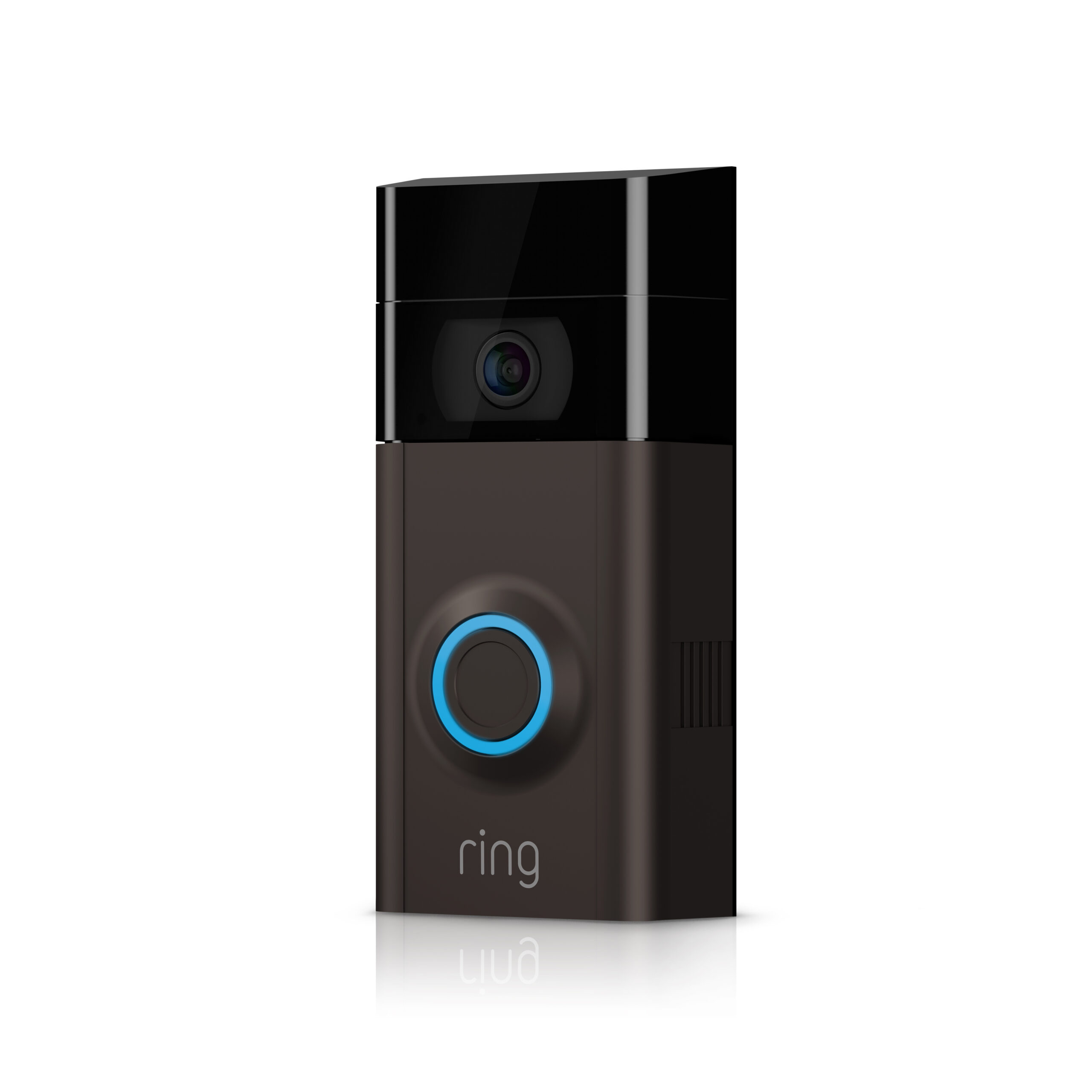(STATELINE) — Amid nationwide protests against police abuses against black people, some civil liberties advocates are calling for Amazon to stop its partnerships with law enforcement agencies through its Ring home surveillance cameras.
“These camera registries will only serve to exacerbate existing forms of discrimination that are rampant within policing and the criminal justice system,” said Evan Greer, deputy director of Fight for the Future, a civil rights advocacy nonprofit focused on technology.
“They speed up and automate police procedures in ways that mean communities that are already overpoliced will be subject to even more law enforcement repression.”
Amazon last week placed a one-year moratorium on police use of its facial recognition technology, a move widely viewed as a response to the protests, though Amazon stopped short of saying so. Ring did not respond to a Stateline request for comment about whether it’s reevaluating its work with police, which includes asking residents to provide video when there’s been a crime
Beyond Ring, many law enforcement agencies have been adopting a less sophisticated system of camera registries based on information volunteered by residents.
The registries, which can be a simple list of addresses, camera placement and contact information, have the potential to expand police surveillance networks. A crime happens on your street, and police know you have a home surveillance or doorbell camera, so they give you a call and ask you to share the footage. For police, it’s a valuable tool to expedite investigations.
Although the registries are voluntary for people sharing information about their camera, anyone who passes in front of a camera could be captured by its watching eyes.
That worries Matthew Guariglia, a policy analyst at the Electronic Frontier Foundation, an international digital privacy rights nonprofit.
“When you are constantly looking through the lens of suspicion, through the front door you make snap decisions about who belongs in your community and who does not,” said Guariglia, who studies race and policing.
“You see someone you don’t recognize, and you think they’re up to no good,” he said. “This absolutely has to do with the race of the individual.”
More Cameras, More Registries
The idea of cameras in police investigations isn’t new. Grainy black-and-white footage has been used for surveillance for years. But newer products that cost as little as $100 and connect with a cellphone make the market much more accessible. And the more people have the cameras, the more appealing their potential becomes for police and government officials.
More localities are joining the registry trend. At least 75 police departments and municipalities in 21 states announced programs since 2018, according to a Stateline review.
“I do think for law enforcement it’s easy to understand the appeal,” said Lior Strahilevitz, a professor at the University of Chicago’s Law School. “There are a lot of instances where if only there had been a bystander on that corner at that time, the crime could have been solved.”
The registries come in a variety of forms — some a simple spreadsheet, others a more sophisticated account with vendors such as a Motorola-run program called CityProtect. (A Motorola spokeswoman declined to give a specific number but said “hundreds” of police agencies use its CityProtect service for registering cameras and/or reporting crime.) The registries can include any kind of camera from Ring to Nest to lesser known brands.
About a year ago, the police department in Vancouver, Washington, started a registry. More than 120 cameras have been registered, said Kim Kapp, the department’s public information coordinator. The registry is kept on a spreadsheet on its server with information residents shared with police: name, address, phone number and camera description.
“Community cameras are a very important part of our world today … that law enforcement can use to hopefully help solve crimes,” Kapp said.
What the department hasn’t done yet is set up an account through Amazon’s Neighbors app — a companion to its Ring line of home security cameras and doorbells. Anyone can join the app and see a social media-like news feed of updates from users within a 5-mile radius of their home.
Law enforcement agencies can make accounts, read posts and add their own. Police can’t see which users have cameras, but they can send a request to Ring for footage from an area and time, which Ring shares with camera owners who fit that description. Users can opt out of these requests.
The use of Ring has grown rapidly. In November, about 400 agencies were using the app. In March, close to 1,000 agencies were. By mid-June, that number had increased to more than 1,300 agencies in all but three states.
Evolving Accuracy
Matthew Kugler, an associate law professor at Northwestern University, said that used properly, camera registries and even facial recognition can be a useful tool.
“We should allow it to be used in a set of cases and be careful to use it in other cases,” he said, adding that he is more open to cameras than some colleagues in privacy law.
“We really do want to be able to identify bad actors and track them easily and punish and rehabilitate them.”
But it’s important to note that the usefulness and accuracy of the technology is still evolving.
“In the current environment, a lot of people are pausing to catch their breath,” Kugler said, “and that’s probably a good thing.”
In some places, elected officials have been careful in setting up the registries.
The San Jose City Council in California implemented a camera registry about a year ago. The Silicon Valley city of a million is broken into 10 districts. In the 9th District, Councilmember Pam Foley wanted to take it a step further and offer residents rebates to buy cameras and share the information with police.
Foley’s program gives up to $100 a person for a camera installed at a home or business. So far more than 30 rebates have been given from the program’s roughly $9,000 budget, Foley said. Officials followed the model of Washington, D.C., which started a rebate program in 2016 and has funded over 18,800 cameras.
“Privacy absolutely is a concern for me and for us,” she said, adding that to get the rebate applicants must agree not to use the cameras for any “unlawful or harassing purposes,” such as recording neighbors.
“Their main concern is, does the police department have access to their camera, and can they see what’s going on at their house,” she said. “The police department does not have access; they only know that it exists.”
For Foley, it was important to have the City Council set standards for the police department.
“It’s important that we keep … control over the information that they are gathering and protecting the privacy of law-abiding citizens,” she said.
The Baltimore City Council passed an ordinance in early March to start a similar program. Under the program, residents who agree to register their cameras with the city’s CitiWatch Community Partnership program for at least two years can get an up to a $150 rebate or voucher. The money would be distributed first to applicants in high-crime areas and lower-income residents.
“It’s a proven deterrent. It leads police in the prosecution and arrest of violent crime,” said Democratic Councilman Eric Costello, who sponsored the bill.
As for privacy concerns, Costello said: “It’s a voluntary program. So if they are concerned about their privacy they don’t have to participate.”
With Tech, It’s Sensitive
In many places, police departments join Ring or start their own registries and announce it on a website or social media page.
Asking people to share information with police isn’t something that requires legislative approval, experts say.
“Just a strictly voluntary registry with nothing going on … I don’t think it’s a big deal,” said Jay Stanley, a senior policy analyst with the American Civil Liberties Union. “If people choose to notify the police just in case they find it helpful, that is fine.”
But he’s skeptical of government entities pushing people to participate, which he thinks an incentive program does.
“I think people buy these cameras because they are looking for empowerment,” Stanley said. “I would ask, are you sure you’re empowering yourself and not a hacker or Amazon or government agencies who want to see the video?”
The ACLU since 2016 has promoted a policy, Community Control Over Police Surveillance, that works to ensure city councils will allow residents to have a say if and how surveillance technologies are used. It’s been enacted in close to a dozen cities and the state of Massachusetts.
“Tech issues are very sensitive,” Stanley said. “It makes sense to talk to communities that they serve and seek them out.”
Sharon Bradford Franklin, policy director for New America’s Open Technology Institute, agrees. She has been watching the use of camera registries grow over the past few years.
“It is highly concerning that police departments are using systems that provide them with regular and routine access with what are supposed to be private cameras,” she said.
Police should apply the same standards to private cameras that are put in place for government-owned cameras, she said, such as limits on how long footage can be stored and requiring a warrant to track an individual. “We need to ensure that robust safeguards are in place for any system that provides police access to camera footage.”
Stateline is an initiative of The Pew Charitable Trusts.
Disclosure: This article may contain affiliate links, meaning we could earn a commission if you make a purchase through these links.






